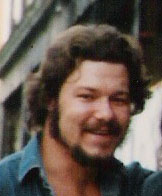RCMP need government oversight
March 8, 2009
By Barbara Yaffe, Vancouver Sun
The jarring testimony that has been presented at the Braidwood inquiry suggests it's time for greater government oversight of the RCMP.
The inquiry, currently on a two-week break, isn't just a test of the four officers whose actions led to the death of Polish immigrant Robert Dziekanski at Vancouver International Airport in October 2007. The reputation of the 136-year-old national police force hangs in the balance.
It had been hoped the RCMP turned a corner in 2007 when the Harper government named William Elliott as the force's first civilian commissioner.
A turnaround certainly was in order after the Maher Arar debacle and tales of RCMP pension fund abuse. Controversies involving the RCMP in B. C. alone were enough to cause consternation.
Former justice Ted Hughes, following a 2001 probe of RCMP actions during a 1997 meeting of Asia-Pacific leaders in Vancouver, criticized unnecessary pepper-spraying of demonstrators, unwarranted arrests, improper removal of protest signs and intrusive strip searches.
The spotlight was back on the RCMP in B. C. in 2005 when Ian Bush, a 22-year-old Houston, B. C., mill worker, was shot -- in the back of the head.
He'd been arrested for having an open beer outside a hockey game and giving a false name. Const. Paul Koester -- five months out of RCMP training -- never faced charges; he was deemed to have acted in self-defence.
Now, testimony before former Supreme Court judge Thomas Braidwood is revealing that armed RCMP officers in bulletproof vests were so fearful of a guy with a stapler that, within 30 seconds of arriving on the scene, they Tasered Dziekanski five times in 31 seconds. He died of cardiac arrest.
They watched him drop, cry out in agony and go blue in the face -- but they didn't offer him CPR.
And in their oral recollection of events and written recordings, the officers got it all wrong.
Without a bystander's video, the public never would have come within a country mile of the truth. How in future can courts be expected to rely on RCMP testimony and incident reports?
To date, none of the officers has admitted to serious misjudgment.
Nor has the RCMP made any gesture to atone for the tragedy.
The RCMP, on its web-site, still maintains Tasers -- implicated in 20 Canadian deaths -- are "another means to obtain compliance from resistant or combative subjects when police must arrest them. The tool allows police at such times to protect the public, and the subjects themselves, from harm."
But Tasers also allow police to get lazy. Four RCMP officers should have better means of subduing a lone suspect than to immediately Taser him.
Consider: if the officers were freaked out by the appearance of an exhausted traveller wielding a stapler, imagine the message they sent Dziekanski by barrelling on to the scene, four-strong and with hands on their weapons.
The Harper government has been mostly silent on the Dziekanski incident. In 2007, then-public safety minister Stockwell Day requested a review of protocols on Taser use. More recently, Peter Van Loan, his successor, insisted Tasers are a useful alternative to deadlier options.
However, Commissioner Elliott revealed last month that officers now are advised Tasers can cause death and should be used more restrictively, only in circumstances involving danger to the public or the officer.
That said, the assortment of inquiries into police conduct in B. C. should give pause.
The Braidwood testimony comes as a $900-million security budget for the 2010 Olympics is about to be handed over to the RCMP for management.
The RCMP story, of course, is not one-sided. Mounties often get cited for heroism and do plenty of good work. But they aren't the source of national pride they once were.
Beyond the scarlet serge and shiny boots lurk obvious problems that call for greater scrutiny. One good option would be a permanent parliamentary oversight committee.


No comments:
Post a Comment